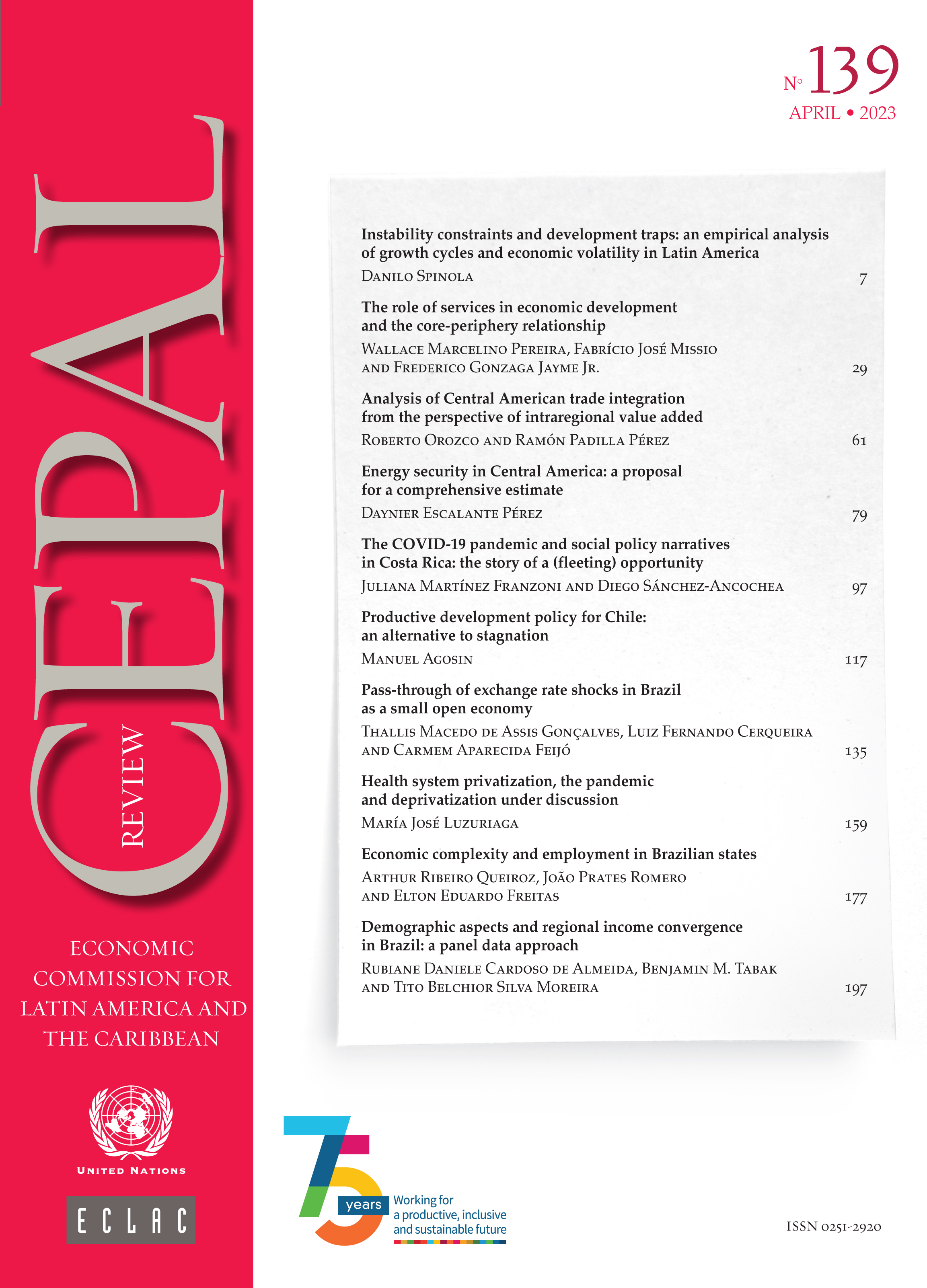-
Demographic aspects and regional income convergence in Brazil: a panel data approach
- Source: CEPAL Review, Volume 2023, Issue 139, Sep 2023, p. 197 - 210
- Spanish
-
- 20 Sep 2023
Abstract
The framework of condition convergence forms the theoretical basis for different dynamic panel data approaches, but depending on the specifications, the method and the time period, results can vary significantly. This article presents empirical results of applying different panel data approaches to study the impact of demographic factors on regional growth of the 27 states of Brazil over 20002014. The results suggest that estimation using the generalized method of moments (GMM) is likely to be more consistent and efficient than the other methods studied. The results also point to a significant and negative relation between the demographic variables and regional economic growth. It is hoped that this study will contribute to the literature, by offering a comparative model framework and an analysis of demographics and economic growth.




